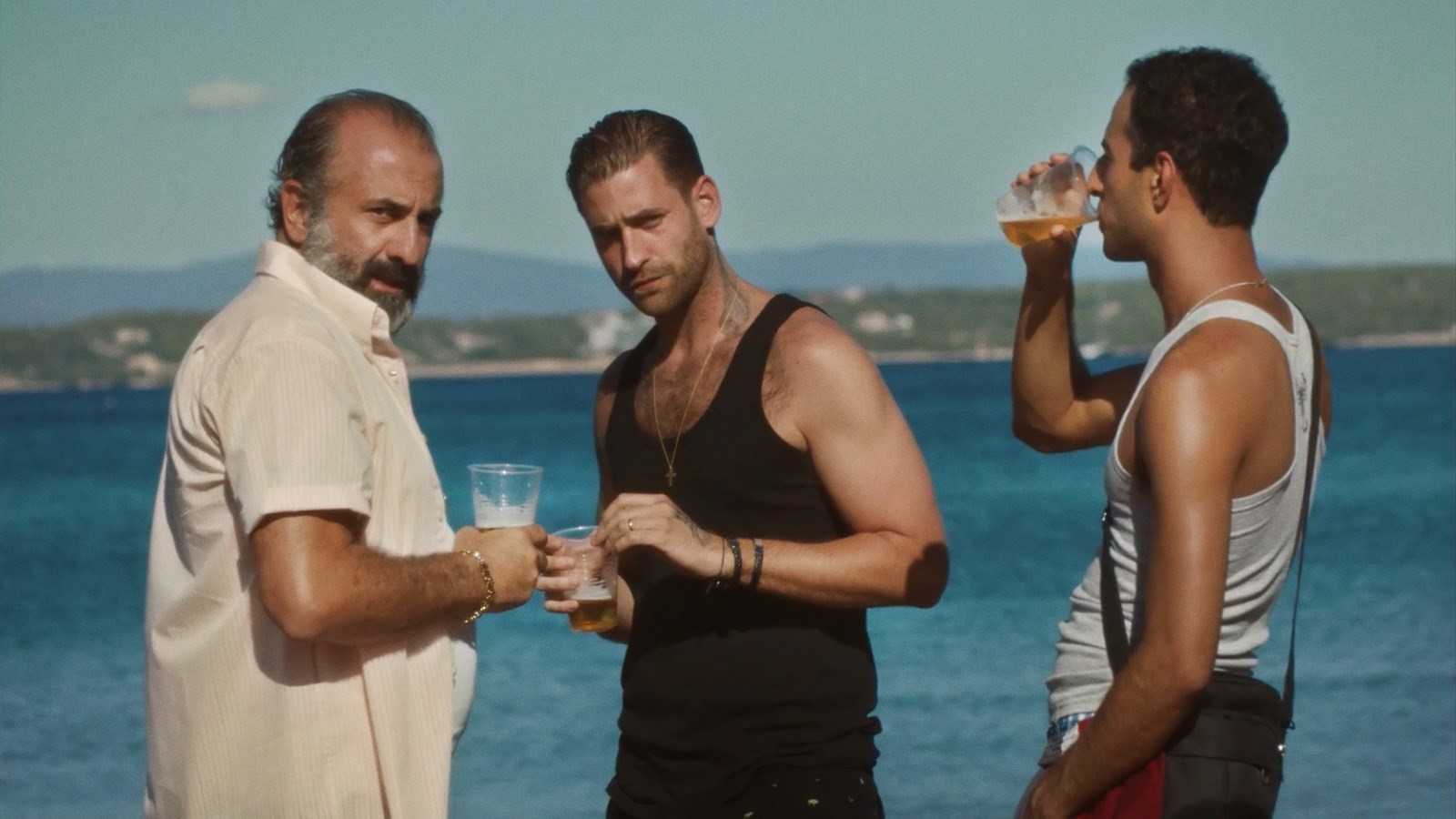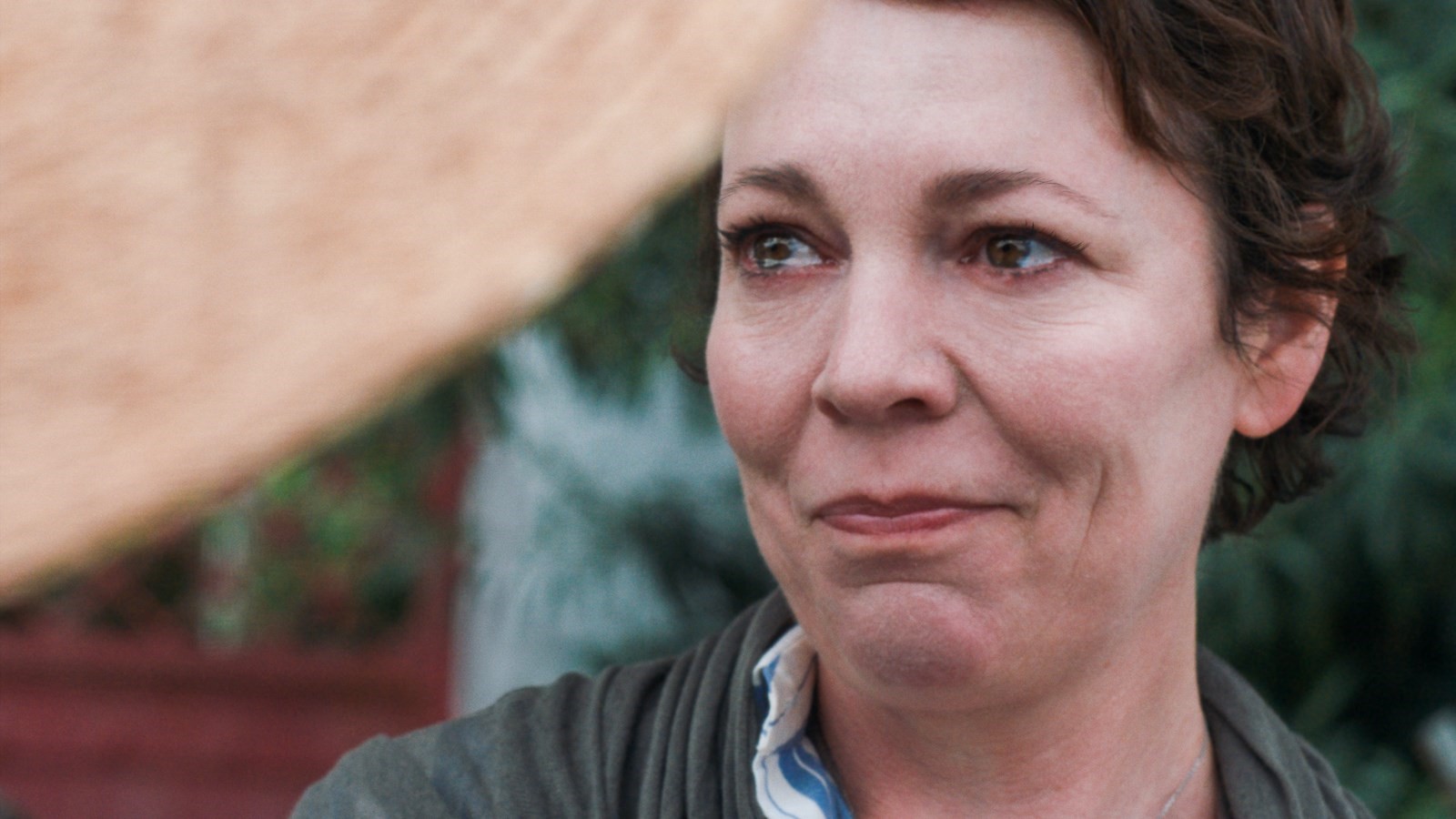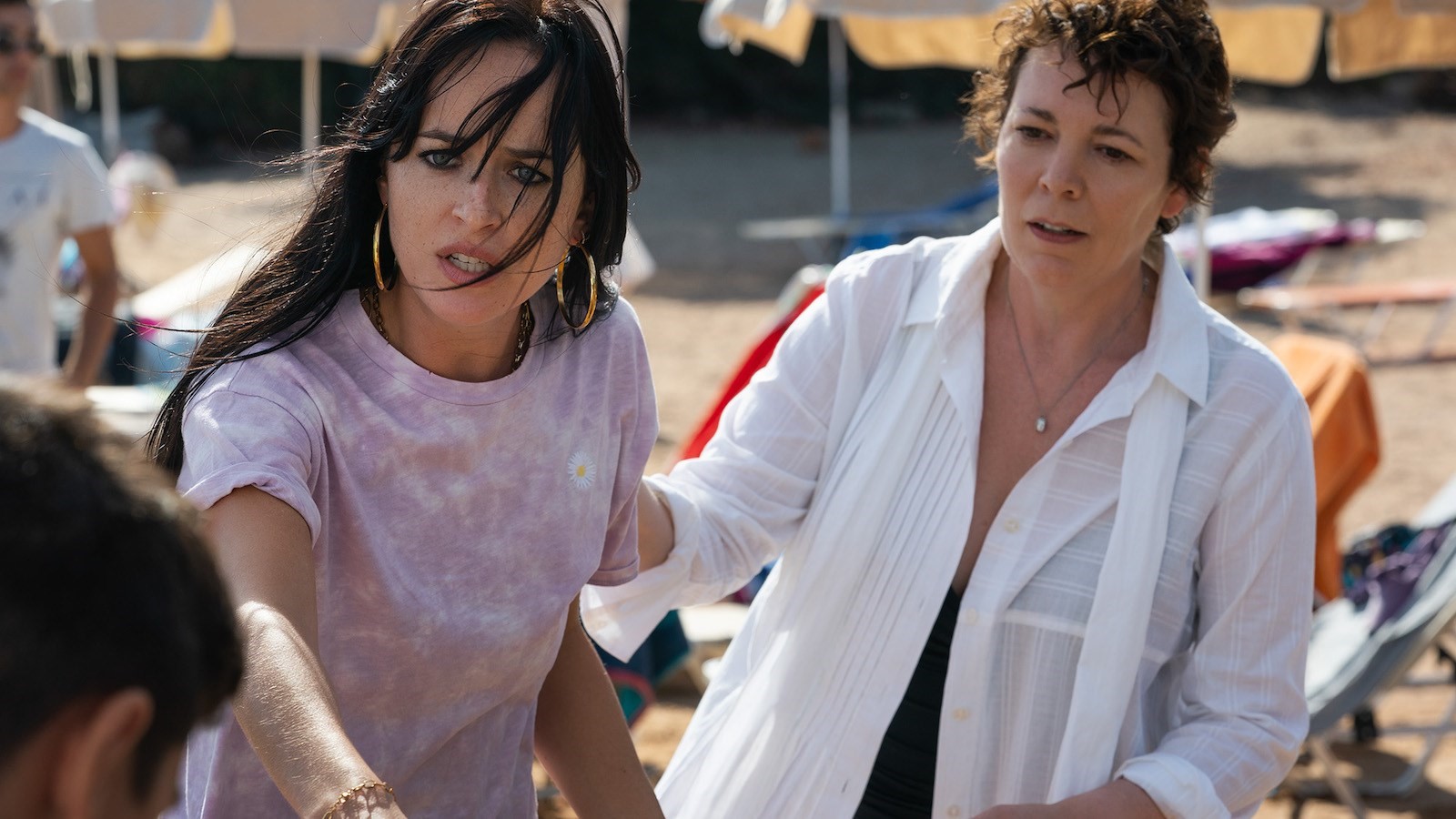When Maggie Gyllenhaal emailed Elena Ferrante to ask if she could adapt one of her books, The Lost Daughter, for the big screen, she was surprised and delighted when the anonymous Italian author said yes. There was, however, one condition: Gyllenhaal herself had to promise to direct it, as well as write it, or the contract was void.
Ferrante, who is widely celebrated for her masterful ability to portray what The New York Times writer Dayna Tortorici describes as “intense and intelligent women as they stare down the ugly side of female experience”, was ready to hand over the reins to another female artist. And she wanted Gyllenhaal to make it her own. As she wrote in an article for The Guardian in 2018, “it’s important for me – for [Maggie], for all women – that her work be hers and turn out well.”
The feted American actress, in her first turn as both a writer and a director, has risen to the occasion with remarkable aplomb, conjuring up a nuanced and nerve-racking study of malcontent motherhood that worms its way under your skin and stays there.

“It took a year to get a strong first draft that I felt good about,” a smiling Gyllenhaal tells AnOther over Zoom. “I was working on [HBO TV drama] The Deuce, as well as doing the press for The Kindergarten Teacher” – another brilliantly unnerving portrait of reluctant motherhood, starring Gyllenhaal as the eponymous schoolmistress. “I would think and think and think about a section of the book [while] I was taking my kids to school, or doing the dishes, working, or acting,” she says, “and then I would end up on an aeroplane [for the press tour] and I’d just write for like six hours, I’d get everything out, and then I’d move onto the next section.”
Once she had her screenplay, Gyllenhaal needed her cast. She secured Olivia Colman as her protagonist, Leda, a British academic in her late 40s, on vacation on a Greek island; Dakota Johnson, as a young American mother also holidaying on the island; Jessie Buckley to play Leda some 20 years earlier, and her own husband, Peter Sarsgaard, to star as one of Leda’s former love interests.
Next up, was the location. “The book takes place in southern Italy, but I had adapted it to take place in the States, [somewhere] like Maine, an eastern seaboard, classic gothic beach town.” Unfortunately, the pandemic came along and scuppered the crew’s plans, and Gyllenhaal had to reach a new decision. “It was almost like it came from a dream or something,” she says with a laugh. “I was like, ‘It could be Greece – because then I could be an outsider in the same way that Leda’s an outsider. And as soon as I said that, we could not be stopped.”

The iridescent Greek light, bright white sand and shabby chic holiday town is a perfectly paradoxical backdrop for the film’s unsettling narrative, which follows Leda as she forges an unlikely friendship with Nina (Johnson), under the watchful gaze of Nina’s large and imposing Greek-American family, who visit the island every summer. Nina sees in Leda the potential for a life lived more freely, while Leda’s interactions with the struggling young mother stir up unwelcome memories from her own past.
The movie cleverly borrows the vocabulary of what Gyllenhaal calls “a classic thriller” – replete with a number of skin-crawlingly unpleasant vignettes – but never quite allows the viewer to relax into what we think we know. This is partially achieved by the deliberate switching between camera angles, the director explains, which serves to disorientate and discombobulate. “One minute we’re watching Nina from Leda’s viewpoint, the next moment, we’re so close you can see the water dripping from her skin. All of a sudden you’re like, ‘Who’s mind are we in? Is this a reliable way through the film?’”
Colman, as ever, gives an extraordinarily deft performance, veering masterfully from shy and reserved to embarrassingly impulsive, from smiling and flirtatious to cold and closed-off. And the rest of the actors work equally hard, conjuring characters that are both compellingly multifaceted and searingly honest.
The cast have spoken in interviews of Gyllenhaal’s skill as a director – no doubt aided by her many years spent in front of the camera – which I get to see a small glimpse of as our conversation draws to a close, and she expands upon her own filmmaking approach.
“I’ve been an actress for so long that I know that people do their best work when they are free and loved and cared about and seen – like truly seen, every atom,” she enthuses. “I’m never going to be the kind of director who has an idea of what a scene needs to be and then forces their actors to do it that way”. Instead, she notes, she aimed to create the space and freedom to allow her actors to be brave. “I would give Olivia, or the others, a little note or thought and it was so exciting to see how they would digest it.” The results, she says, were “inspiring and surprising” – words that elegantly encapsulate Gyllenhaal’s directorial debut, a story that Ferrante was wise to judge she would tell so uniquely and so well.
The Lost Daughter is in select cinemas nationwide now, and on Netflix from December 31.
